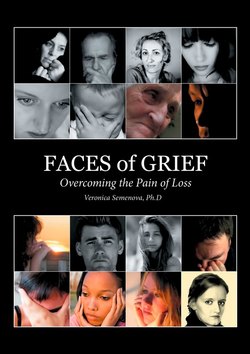Читать книгу Faces of Grief. Overcoming the Pain of Loss - Veronica Semenova - Страница 12
Chapter four. Types of Losses
Оглавление“The reality is that you will grieve forever. You will not ‘get over’ the loss of a loved one; you will learn to live with it. You will heal and you will rebuild yourself around the loss you have suffered. You will be whole again but you will never be the same. Nor should you be the same nor would you want to.”
Elisabeth Kübler-Ross (1926—2004)
Some losses may be easier to come to terms with than others: for example, the death of elderly family members. Other losses, such as losses of children or young adults to accidents, illnesses, or wars, are far harder to process. When an elderly person dies, I often hear people saying that “he or she lived a good and long life”. That doesn’t mean that the spouse or the children will not grieve their loss. Every death takes away a part of the life of the grieving person, as well as reminding them about their own mortality and awakening the fear of death.
In general, the death of a child and the death of an elderly person have a lot of similarities and differences as far as the grief process and adapting to the loss are concerned. Due to the nature of the loss and the expectation that parents are expected to die before their children, the loss of a child is an unexpected event; while the loss of an elderly person, in contrast, is usually an expected one. This, however, does not mean that the loss of an elderly person will not evoke emotional distress and grief. The disruption of the child-parent bond causes emotional upset and bereavement irrespective of timing, when it dissolves.
In the following chapters we will look at the differences that the loss of a spouse, parent, child, or sibling bring with them. No loss is easy, so by no means should one consider that it may be easier to cope with one type of loss over the other. As we discussed before, our grief depends on the level of attachment and on the type of the relationship we had with the deceased. So the more you cared for the person while he or she were alive and the more you felt attached to and depended upon the person, the more you will grieve the loss of the attachment bond and the more difficult learning to live with that loss will be. One of the further chapters will also talk about the loss of a loved one through suicide.
Anger, despair, emptiness, and being haunted by question «why?» are some of the difficult feelings the loved ones of the deceased go through as they cope with their sudden loss.
